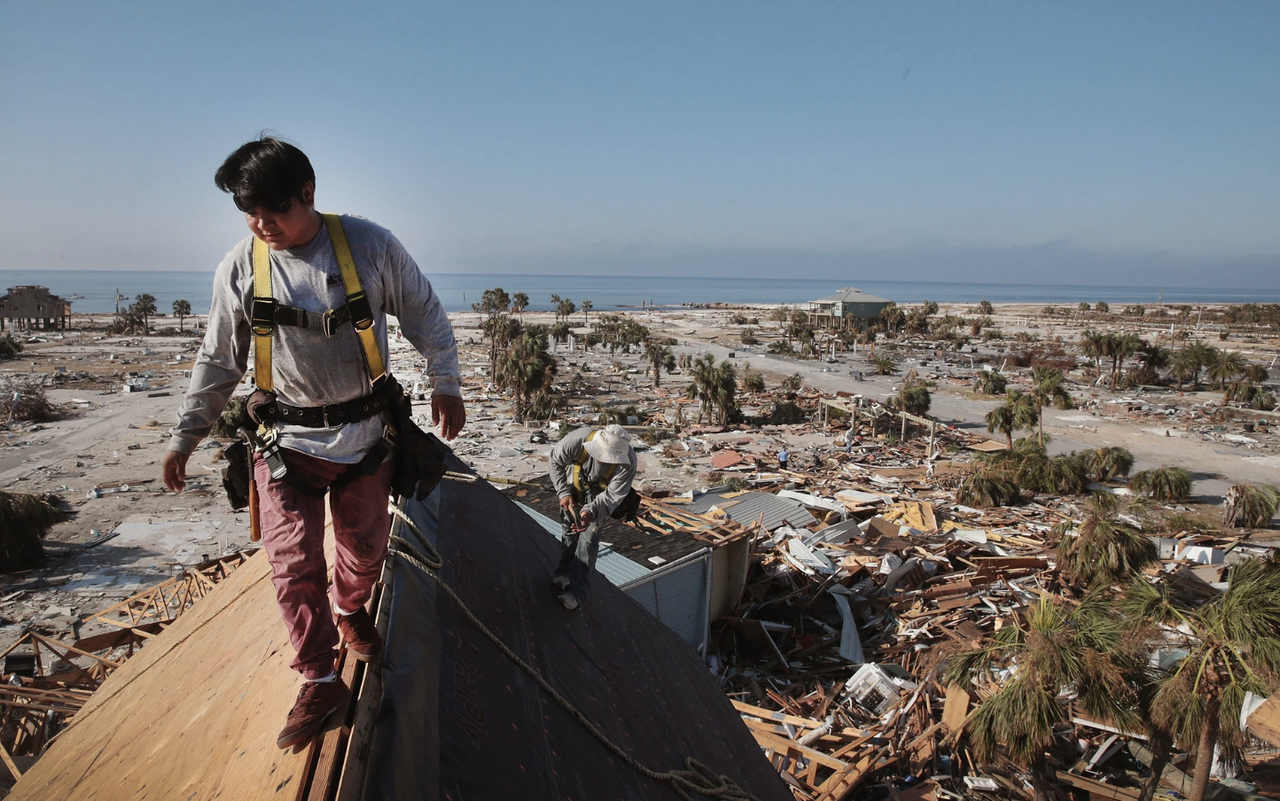Sound Familiar? Banks Are Saddling Fannie & Freddie With Risky Mortgages, Study Finds
A few unfortunately-placed hurricanes could leave US taxpayers shouldering billions of dollars in worthless mortgages on homes in natural disaster-prone areas, while the banks that originally underwrote those mortgages get off scott-free. In a scenario that might sound familiar to readers who remember the run-up to the financial crisis, new research has found that Fannie Mae and Freddie Mac have been buying mortgages on homes in disaster-prone areas and packaging them up into securities, without charging a premium that accurately reflects long-term disaster risks.
The New York Times reports that the new findings “echo the subprime lending crisis of 2008, when unexpected drops in home values cascaded through the economy and triggered recession.” The only difference is that, this time around, the loans will have a 0% chance of rebounding, since the homes might be literally underwater
One professor said the mortgage market’s exposure to natural disasters could be massive – possibly even as large as the losses from the subprime crisis.
“The problem they’ve discovered is likely to grow in magnitude and is clearly important, because the taxpayer is on the hook,” said Susan Wachter, a professor of real estate and finance at the University of Pennsylvania’s Wharton School.
The mortgage market’s exposure to flooding “could be as large as the losses due to the subprime crisis,” Ms. Wachter said, referring to the 2008 housing crisis, which threw the nation into its worst economic downturn since the 1930s.
And all signs suggest that the banks are doing this deliberately – they’re aware of the risks.
The paper’s findings suggest that banks and other lenders are aware of that threat, she added. “They see this coming,” Ms. Wachter said. “And they’re taking steps to shift the risk.”
The study’s author said that banks are still underwriting up to $100 billion of mortgages on homes in disaster-prone areas a year: “we’re not talking about a small number.”
“We’re talking about a loss that’s going to be borne by United States taxpayers,” said Amine Ouazad, a professor in the department of applied economics at HEC Montreal and one of the paper’s authors. He added that with between $60 billion to $100 billion in new mortgages issued for coastal homes each year, “we’re not talking about a small number.”
Mr. Ouazad, along with his co-author Matthew Kahn, a professor at Johns Hopkins University, examined the behavior of mortgage lenders in areas hit by hurricanes between 2004 and 2012, each of which caused at least $1 billion in damages. They found that, after those hurricanes, lenders increased by almost 10 percent the share of those mortgages that they sold to Fannie Mae and Freddie Mac, government-sponsored enterprises whose debts are backed by taxpayers.
The study found that the odds of a default climb 3.4% to 5% on mortgages underwritten during the first years after a major hurricane. They expect these numbers to rise, though, as natural disasters lay waste to entire neighborhoods, rendering them unlivable.
“An increase in the vacancy rates, neighborhood blight and lack of amenities will exacerbate the decline in property values,” Mr. LaCour-Little and his co-authors wrote. Borrowers in these areas “may face both the inability to repay their mortgage, and the inability to recoup enough funds when selling their house to cover the unpaid mortgage principle.”
By agreeing to buy mortgages on homes in natural disaster-afflicted areas without factoring in these long-term risks, the federal government, through Fannie Mae and Freddie Mac, are providing “an implicit subsidy,” another professor said.
But hopefully, taxpayers won’t need to worry about this in the not-too-distant future. Because in a memo signed earlier this year, President Trump kickstarted a lengthy process to privatize the two Government-Sponsored Enterprises. However, fears of sizable losses related to homes in natural-disaster-prone areas could complicate this process.
Tyler Durden
Fri, 09/27/2019 – 15:17
via ZeroHedge News https://ift.tt/2nm7Au1 Tyler Durden
